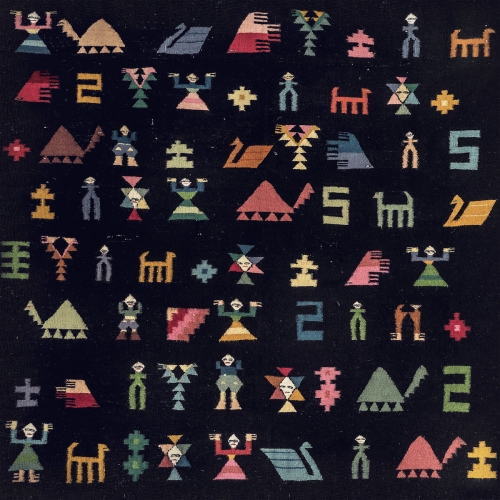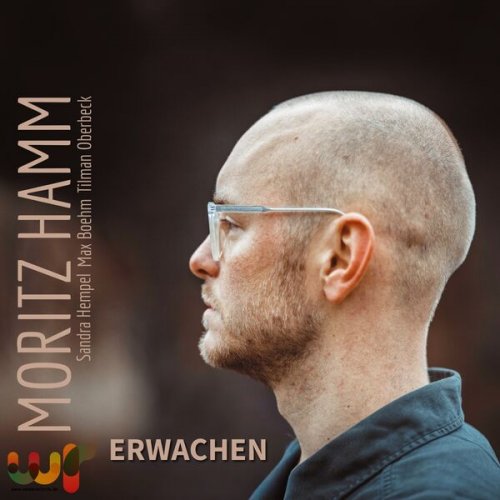Matthias Goerne, Thomas Larcher & Ensemble Resonanz - Hanns Eisler: Ernste Gesänge - Lieder with piano (2013) [Hi-Res]
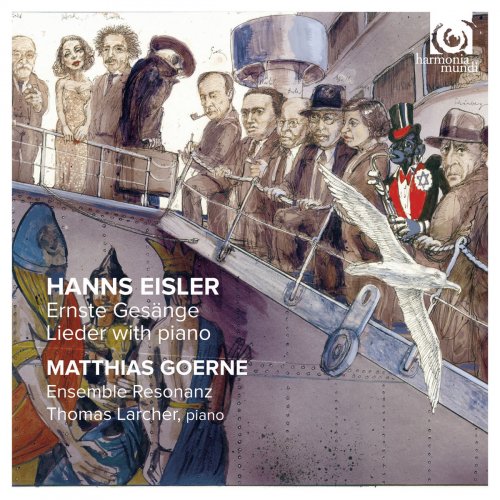
Artist: Matthias Goerne, Thomas Larcher, Ensemble Resonanz
Title: Hanns Eisler: Ernste Gesänge - Lieder with piano
Year Of Release: 2013
Label: harmonia mundi
Genre: Classical
Quality: flac lossless / flac 24bits - 96.0kHz +Booklet
Total Time: 00:54:02
Total Size: 227 / 940 mb
WebSite: Album Preview
TracklistTitle: Hanns Eisler: Ernste Gesänge - Lieder with piano
Year Of Release: 2013
Label: harmonia mundi
Genre: Classical
Quality: flac lossless / flac 24bits - 96.0kHz +Booklet
Total Time: 00:54:02
Total Size: 227 / 940 mb
WebSite: Album Preview
---------
01. Ernste Gesänge für Instrumentalensemble & Bariton: Vorspiel und Spruch
02. Ernste Gesänge für Instrumentalensemble & Bariton: 1. Asyl
03. Ernste Gesänge für Instrumentalensemble & Bariton: 2. Traurigkeit
04. Ernste Gesänge für Instrumentalensemble & Bariton: 3. Verzweiflung
05. Ernste Gesänge für Instrumentalensemble & Bariton: 4. Hoffnung
06. Ernste Gesänge für Instrumentalensemble & Bariton: 5. XX. Parteitag
07. Ernste Gesänge für Instrumentalensemble & Bariton: 6. Komm ins Offene, Freund!
08. Ernste Gesänge für Instrumentalensemble & Bariton: 7. Epilog
09. 17 Lieder mit Klavier: Hotelzimmer 1942
10. 17 Lieder mit Klavier: Die Flucht
11. 17 Lieder mit Klavier: An den kleinen Radioapparat
12. 17 Lieder mit Klavier: In der Frühe
13. 17 Lieder mit Klavier: Frühling
14. 17 Lieder mit Klavier: Speisekammer 1942
15. 17 Lieder mit Klavier: Die Heimkehr
16. 17 Lieder mit Klavier: Die Landschafts des Exils
17. 17 Lieder mit Klavier: Und es sind die finstern Zeiten
18. 17 Lieder mit Klavier: Über den Selbstmord
19. 17 Lieder mit Klavier: Verfehlte Liebe
20. 17 Lieder mit Klavier: Ostersonntag
21. 17 Lieder mit Klavier: Vom Sprengen des Gartens
22. 17 Lieder mit Klavier: Der Kirschdieb
23. Sonata n° 1 für piano: I. Allegro
24. Sonata n° 1 für piano: II. Intermezzo. Andante con moto
25. Sonata n° 1 für piano: III. Finale. Allegro
26. 17 Lieder mit Klavier: Lied von der belebenden Wirkung des Geldes
27. 17 Lieder mit Klavier: Ballade vom Wasserrad
28. 17 Lieder mit Klavier: Solidaritätslied
From 1920s Vienna and the Berlin of the Weimar Republic to emigration to the USA, then back to Vienna after the defeat of Nazism, to end his days in East Berlin: Hanns Eisler’s life was one long exile against the backcloth of the artistic, technical and political revolutions of the 20th century. Distance, irony and melancholy are the aesthetic corollaries that characterise the lieder presented here, their atmosphere often evoking the despair of those dark times. The early piano sonata gained the young Eisler an admiration that has never dimmed. Hanns Eisler was born in Leipzig on 6 July 1898 and went to school in Vienna. After two years as a common soldier in the First World War, he became a student of Arnold Schoenberg in 1919, dedicating his Sonata for Piano Op. 1 to his teacher in 1923. He moved to Berlin 1925, where he composed for workers' choruses and agitprop groups and collaborated with Brecht (Die Maßnahme, Die Mutter) from 1928. Eisler initially moved to Paris then London, before taking exile in America from 1938, where he created his most significant chamber music works. Alongside music for eight Hollywood pictures, Eisler also composed his 'Hollywood Songbook' to texts by Brecht, Hölderlin and others while in California.
In 1948, Eisler returned to Europe, initially to Vienna and Prague and ultimately to East Berlin. Although he wrote the National Anthem of the GDR to a text by Johannes R. Becher, conflict arose with GDR cultural bureaucracy when he published his libretto 'Johann Faustus' in late 1952. In 1959, he witnessed the premiere of his 'Deutsche Symphonie', mostly composed while in exile, at the State Opera Unter den Linden. He died on 6 September 1962 in East Berlin.
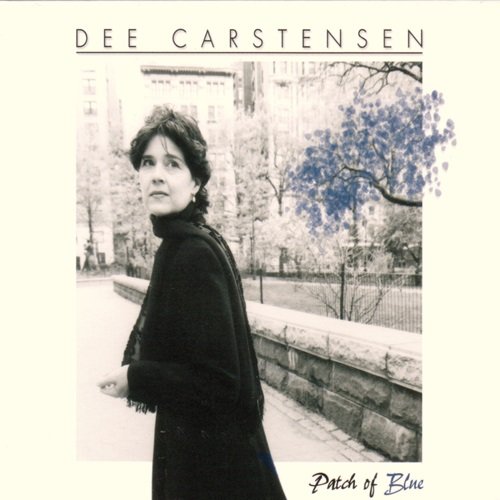
![Herbie Mann - East Coast Jazz / 4 (Remastered 2014) (2026) [Hi-Res] Herbie Mann - East Coast Jazz / 4 (Remastered 2014) (2026) [Hi-Res]](https://www.dibpic.com/uploads/posts/2026-02/1770799757_u38b9gzog0i62_600.jpg)

![John Coltrane - Giant Steps (1959) [2022 DSD256] John Coltrane - Giant Steps (1959) [2022 DSD256]](https://www.dibpic.com/uploads/posts/2026-02/1770884999_cover.jpg)
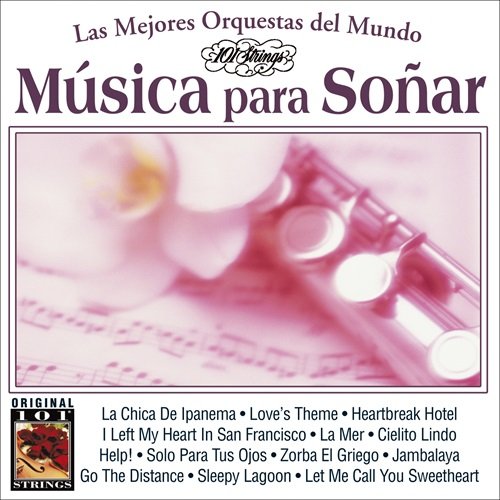
![Mal Waldron - Left Alone (Remastered 2014) (2026) [Hi-Res] Mal Waldron - Left Alone (Remastered 2014) (2026) [Hi-Res]](https://www.dibpic.com/uploads/posts/2026-02/1770802366_zssweohuxq7f9_600.jpg)
![Lawson Rollins - Next Steps (2026) [Hi-Res] Lawson Rollins - Next Steps (2026) [Hi-Res]](https://www.dibpic.com/uploads/posts/2026-02/1770816912_hjwdsle59zzz6_600.jpg)
